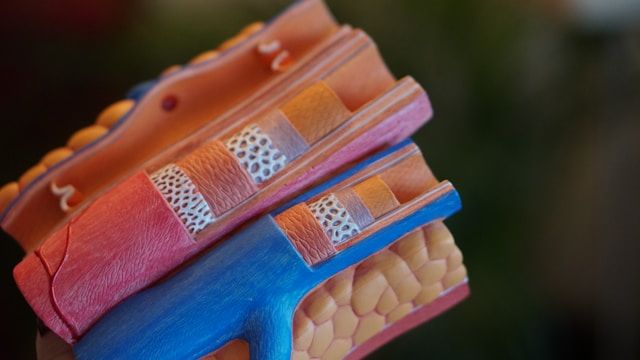Cholesterol is a wax-like fat (referred to as a lipid) found in your body cells. Contrary to popular belief, cholesterol isn’t always ‘bad’ and plays many essential roles that are vital for your survival. However, in some circumstances, too much cholesterol contributes to heart disease.
Understanding Your Cholesterol Numbers
Your doctor will request a fasted lipid profile blood test (also known as a lipogram) to determine how much cholesterol is in your blood. Your blood test results will reveal the concentrations of two main cholesterol types: high-density lipoprotein (HDL) or the “good” cholesterol and low-density lipoprotein (LDL) or the “bad” cholesterol.
Ideal Cholesterol Levels:
- More HDL (>1 mmol/L or >40 mg/dL in men and >1.3 mmol/L or >50 mg/dL in women): HDL transports cholesterol to your liver and helps remove cholesterol from your body. Maintaining normal to high concentrations of HDL is associated with a lower risk of cardiovascular disease.
- Less LDL (<3.0 mmol/L or <115 mg/dL): LDL can combine with other substances and form plaques in the walls of your arteries, especially in the presence of inflammation. These plaques can clog up your arteries, causing a condition called atherosclerosis.
- Total Cholesterol: This number includes all types of cholesterol, both good and bad. A total cholesterol level below 5.0 mmol/L (200 mg/dL) is desirable but might still be abnormal if you have a high ratio of LDL to HDL.
Causes of High Cholesterol
Genes, medical conditions, medication use, and lifestyle all influence your cholesterol levels. While you can’t change your genetic makeup or medical history, you can change your behaviours. As a start, focus on these three non-negotiables:
- Limit Unhealthy Fats. Consuming a surplus of saturated fats and trans fats in your diet raises your LDL cholesterol. These fats are prevalent in highly processed convenience and snack foods. When in doubt, stick to fresh produce. Following a diet like the Mediterranean diet, which emphasises fruits, vegetables, whole grains, nuts, and healthy fats (like olive oil), can be very effective.
- Include these foods in your diet:
- Fatty fish (like salmon and mackerel)
- Olive oil
- Nuts and seeds
- Whole grains
- Fruits and vegetables
- Legumes
- But avoid these:
- Processed meats
- Full-fat dairy products
- Trans fats found in many baked goods and fried foods
- Highly processed foods
- Get Enough Exercise: Insufficient physical activity and too much sitting time lower your HDL cholesterol. Movement aids weight loss, helping to drive down dangerous LDL levels. Aim for at least 150 minutes of moderate-intensity exercise per week, such as brisk walking or cycling.
- Avoid Smoking: Smoking raises your LDL cholesterol and lowers your HDL cholesterol. Quitting can have your cholesterol back to normal in as little as six weeks.
Managing Your Risk
Knowing your cholesterol numbers can help your doctor determine your potential risk for cardiovascular diseases, like coronary artery disease, peripheral arterial disease, and strokes.
Remember, what gets measured gets managed.
.svg)

